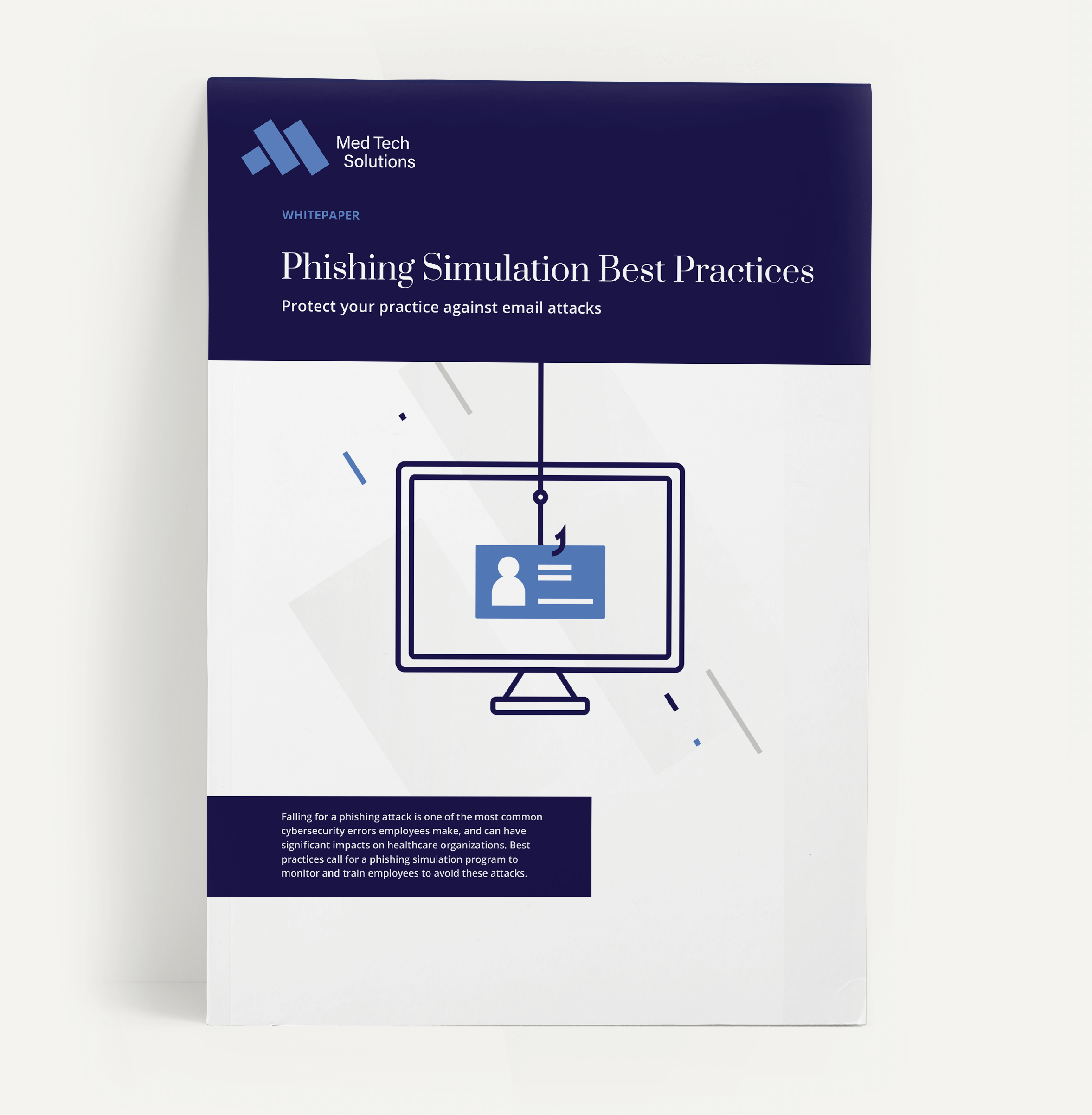

Healthcare IT Experts Answer Your Top 3 Security Questions

IT security is top-of-mind in nearly every industry these days, and for good reason. Larger and more destructive cyberattacks regularly make the news, while company executives scramble to make sure their organization isn’t in the next headline.
This concern is especially relevant in healthcare. While 70% of organizations reported a significant IT security incident in the past year, their cybersecurity budgets are still only 6% or less of their IT budgets (2020 HIMSS Cybersecurity Survey).
These days, hackers seem to have unlimited technical capabilities and traditional security measures just can’t keep up. That’s why Med Tech Solutions has joined with Avertium and LIFARS to create the healthcare industry’s first cloud security alliance that combines managed IT and cloud services, a managed security operation center, and incident response. These combined technologies and expert teams monitor and protect our clients’ critical systems and businesses.
Of course, within the rapidly changing IT security landscape, there are always questions.
In this post, our IT security experts and partners respond to some of the most common IT security concerns for healthcare organizations.
What impact will doing security right have on our physicians, clinical teams, and support staff?
The goal of security is not to say “no” to legitimate users; it’s to say “yes” safely. That’s particularly important when your employees are working with patients’ personal health information (PHI). Security measures are designed to protect the data that healthcare organizations are responsible for, in the same way that your organization is a steward of your patient’s health.
Of course, improving security may require some behavior changes for providers and staff members, but those shouldn’t disrupt people’s daily work. Changes should include using multi-factor authentication (MFA) and following strong password policies. Because human error can be a key source of security risks, programs such as phishing simulation are also important. These programs send seemingly legitimate emails to employees to see if they’re vulnerable to malicious emails and then provide training to help them identify and avoid actual risks.
But the best way a healthcare organization can reduce the impact on providers and staff is by working with IT and security partners who understand everything from your clinical workflows to your compliance requirements. That ensures that your security and systems implementations are designed specifically to protect you and your patients without interfering with your ability to provide care.
When an organization moves to a cloud infrastructure, how does it affect its vulnerability?
When you move to a cloud infrastructure, the security approach is essentially the same as on-premise hosting. Ultimately, cloud implementation just moves where your servers reside; the security aspect has to do with access to the data on those servers. Migration to the cloud boils down to privileged access management and information governance for the data your organization depends on.
The difference is whether you have to design, deploy, and maintain that infrastructure yourself, or you have a hosting provider to do it for you. When we implement networks in the cloud, we include endpoint detection and response (EDR) systems, advanced next-generation firewall technologies, security information and event management (SIEM) systems, as well things like security training, compliance experts, and incident response teams to make sure our clients are covered from end to end.
The advantage of a secure, managed cloud infrastructure like ours—whether that’s a private, public, or hybrid cloud environment – is that organizations get the advantage of economies of scale. For a healthcare organization to put all those things in place on-premise can be expensive and resource-heavy. We provide both managed security and network operations centers with complete visibility to minimize your vulnerability in a way that’s much more difficult and expensive to do on your own.
What concerns and roadblocks do healthcare organizations raise when it comes to implementing security enhancements?
Often the first concern is budget. Unfortunately, the amount of money that is typically spent responding to a security incident far exceeds—up to 10 times as much—the amount you would have spent doing it right in the first place. In many cases, organizations also don’t have the personnel resources or the skillsets to implement security effectively, and to maintain and adapt their security systems to respond to ever-evolving threats. That’s going to continue to be a challenge as there is a huge shortage of cybersecurity talent in the market.
For healthcare organizations, these concerns should be the catalyst for a new approach.
Your focus is patients, not IT and security. Our alliance puts a singular focus on secure, reliable systems and we’re able to apply our skilled resources across all of our cloud infrastructure clients. That gives you always-on access to the highest levels of security. You may not need that access every day, but when you do need it, you need it instantly. We’re prepared, we’re coordinated, and we know exactly what to do if a cybersecurity event occurs.
One other thing we often hear from healthcare organizations is a concern about HIPAA compliance. Unfortunately, it can be easy for that to become a check-the-box exercise, but compliance doesn’t equate to security. That’s why we’ve taken the important step of achieving HITRUST CSF-certification for our cloud infrastructure. HITRUST certification involves more than 400 security controls that include HIPAA and dozens of other global security standards. And this isn’t a single snapshot in time. We have to show processes and evidence to prove ongoing HITRUST compliance. Everything we learn from those controls informs everything we do, and every client engagement.
That’s the kind of commitment that should help healthcare organizations move past internal roadblocks to ensure the security of your patients’ data as well as the long-term viability of your business.
Did you miss our webinar on how to build an always-on security team?
Learn from the experts what you need to know about cloud security. Download the webinar.









